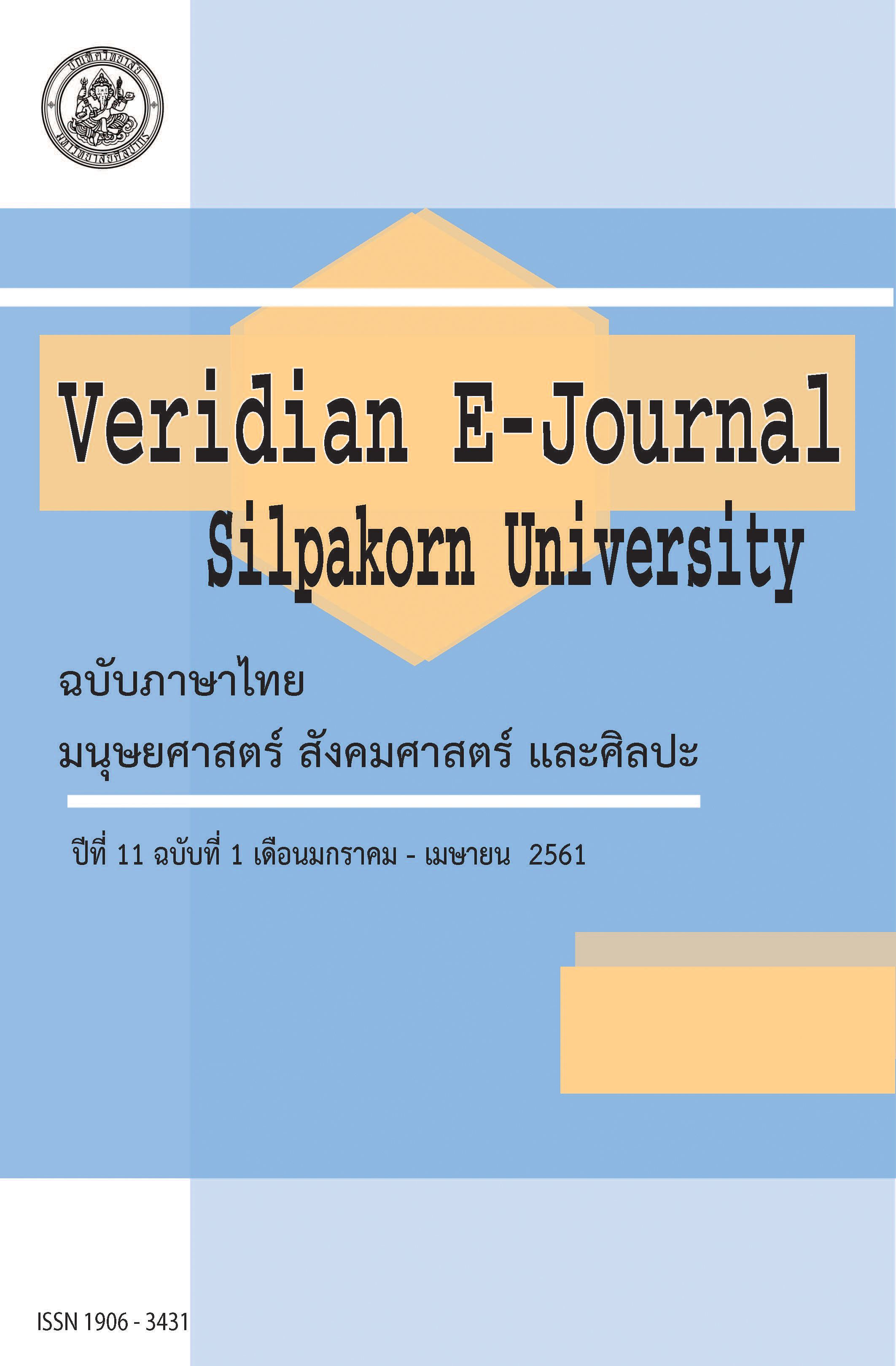ความฉลาดทางวัฒนธรรมทางของนิสิตในมหาวิทยาลัยไทย (Cultural Intelligence of Undergraduate Students in a Thai University)
Main Article Content
Abstract
ความฉลาดทางวัฒนธรรมเกี่ยวข้องกับความสามารถของมนุษย์ในการทำความเข้าใจกับวัฒนธรรมและปรับให้เข้ากับสภาพแวดล้อมใหม่ การศึกษางานวิจัยก่อนหน้านี้การวิจัยส่วนใหญ่เน้นงานวิจัยเชิงปริมาณ อย่างไรก็ตามในบริบทของประเทศไทย นักวิจัยยังให้ความสนใจในความฉลาดทางวัฒนธรรมน้อย ยังไม่พบว่ามีงานวิจัยที่ศึกษาตัวแปรความฉลาดทางวัฒนธรรมในกลุ่มนิสิต รวมถึงยังไม่พบงานวิจัยที่ศึกษาความหมายที่แท้จริงของความฉลาดทางวัฒนธรรมในกลุ่มนิสิตในสังคมไทยดังกล่าว วัตถุประสงค์หลักของการศึกษาครั้งนี้คือเพื่อทำความเข้าใจความหมายของปัญญาทางวัฒนธรรมระหว่างนิสิตระดับปริญญาตรี เป็นการศึกษาเชิงปรากฏการณ์วิทยาแบบตีความ (Hermeneutic Phenomenoly) ตามแนวคิด มาร์ติน ไฮเดกเกอร์ (Martin Heidegger) โดยดำเนินการศึกษาวิจัยตามกระบวนการวิจัยของแวน มาแนน (Van Menen) เก็บข้อมูลโดยการสัมภาษณ์แบบเจาะลึก (In-depth Interview) แบบไม่มีโครงสร้างและการศึกษาเอกสารที่เกี่ยวข้อง กลุ่มผู้ให้ข้อมูลหลักเป็นนิสิตฝึกสอนชั้นปีที่ 5 ที่มีสาขาวิชา / สาขาวิชาต่างๆในมหาวิทยาลัยแห่งหนึ่ง เลือกผู้ให้ข้อมูลหลักโดยใช้วิธีการเลือกตัวอย่างแบบเจาะจง ผลจากการศึกษาพบว่าความหมายของความฉลาดทางวัฒนธรรมใน 6 ลักษณะ ดังนี้ 1.ความชอบเจอความท้าทาย 2.การจัดการความคิด 3.การปรับเมื่อเจอความแตกต่าง 4.ยอมรับฟังความคิดเห็น 5.การถนอมน้ำใจ 6.การอ่อนน้อมถ่อมตน
Cultural intelligence relates to the study of human capability to understand the culture, and to adapt it to the new environment. In previous studies, most research emphasize on quantitative evaluation. However, in Thai context, there has been no cultural intelligence report among students. Main objective of this study is to understand the meaning of cultural intelligence among undergraduate university students. The research methodology is grounded on Phenomenology study and Hermeneutic Phenomenology based on the concept of Heidegger. The steps of research process developed by van Manen are used. The data were collected by in-depth, non-structure interviews and the study of related documents. The 5th year undergraduate students with various majors/areas of study in Thai public universities were selected as samples, using purposive sampling method. Among these students, six of them were chosen as key informants. The findings of this research would make a significant contribution to the understanding of the cultural intelligence, especially in Thai context. In addition, this study can be applied to develop capability of the undergraduate students to understand cultural intelligence and adapt it to a variety of cultures.

